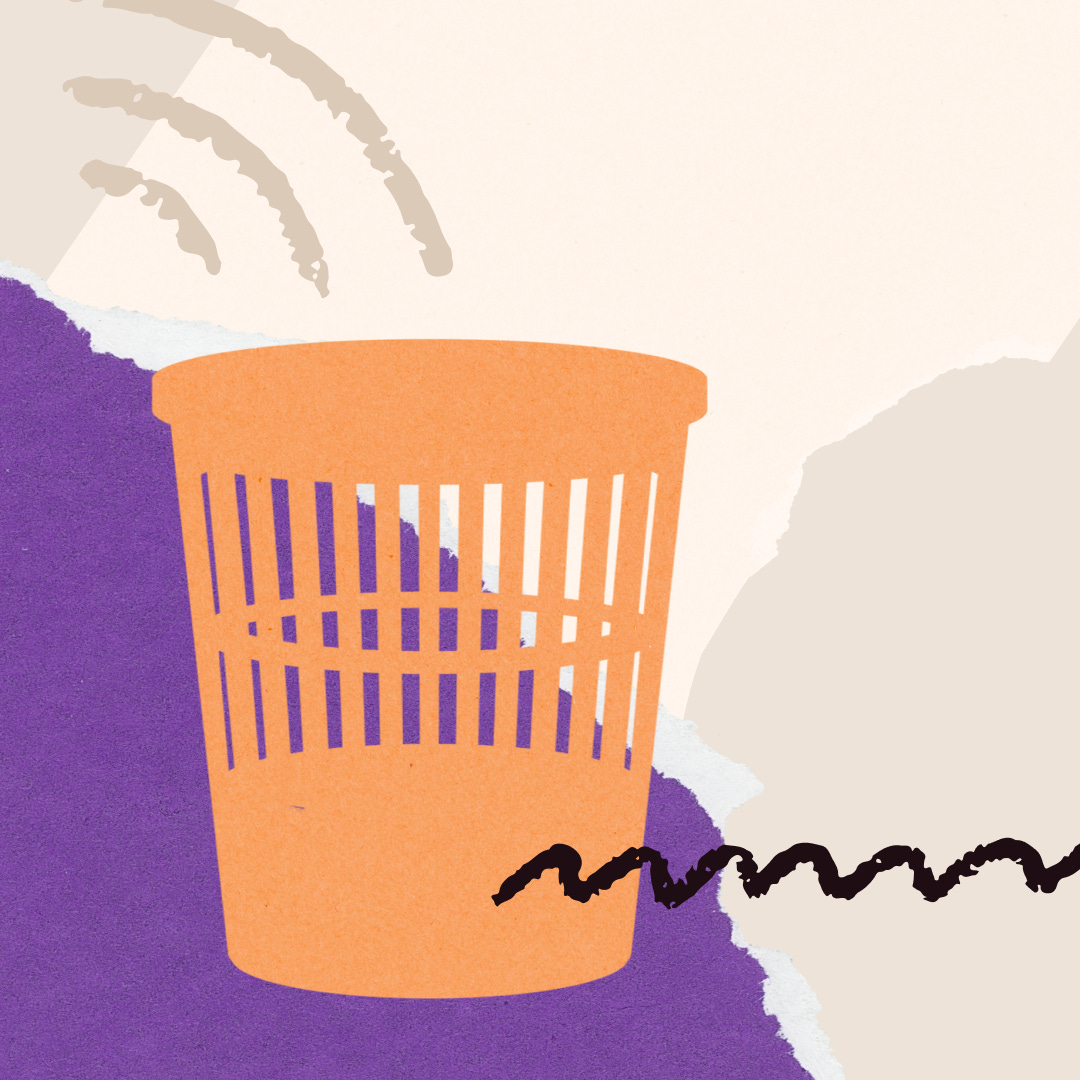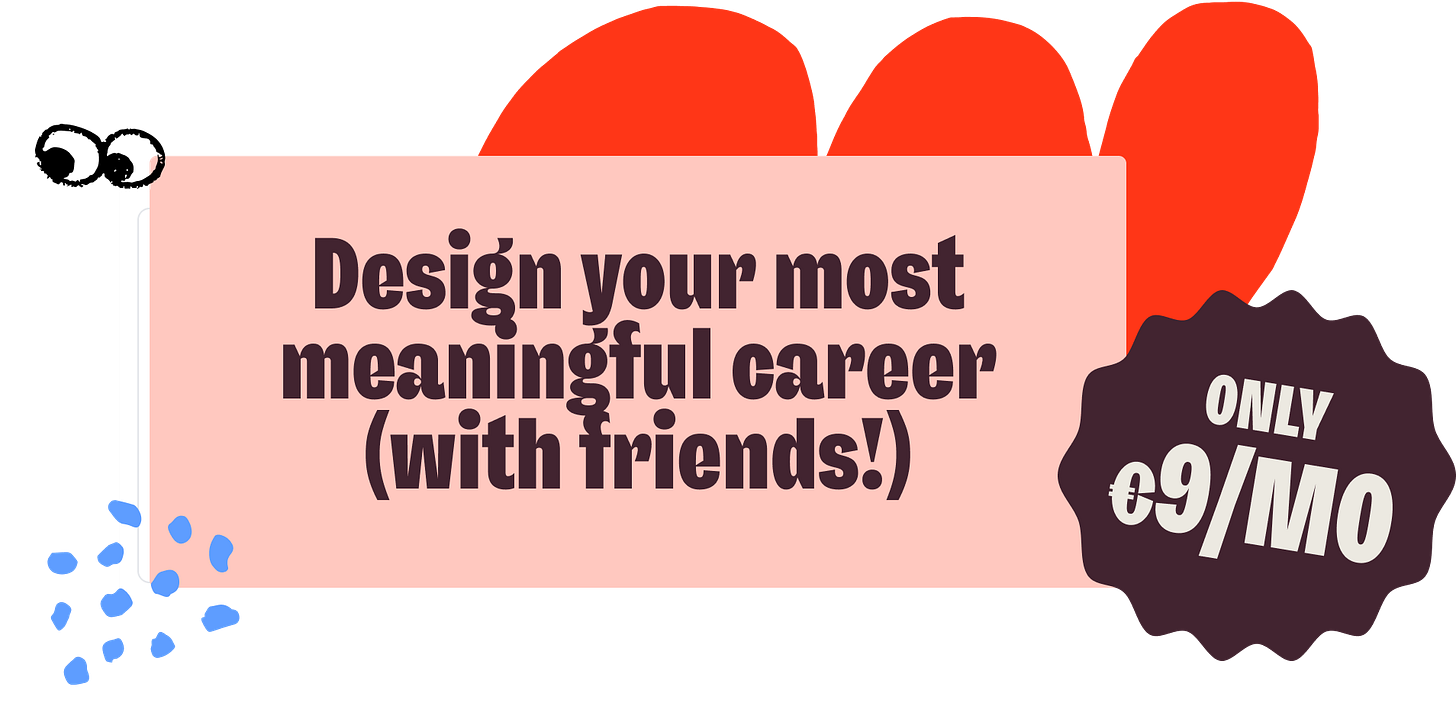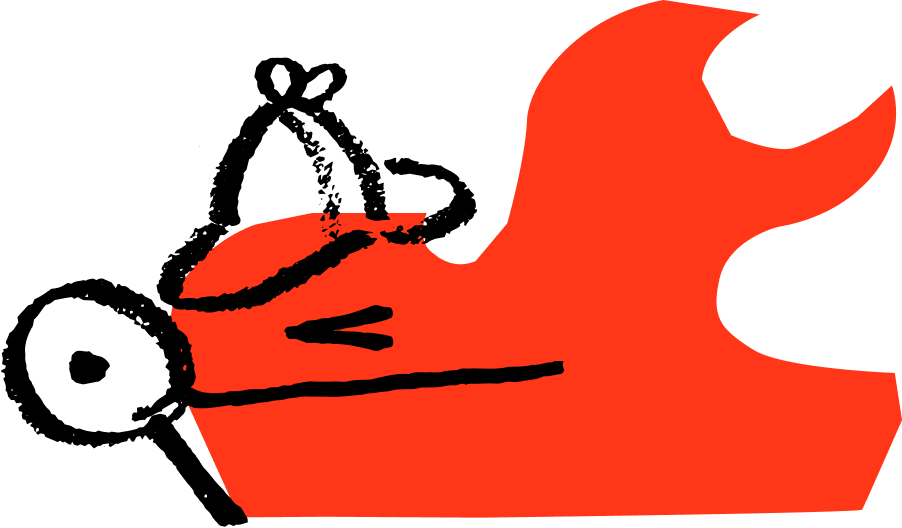Why I delete half my LinkedIn posts
Finding your people in the age of the Audience-Building Industrial Complex
Hi there! You’re reading the Bonfire newsletter from Kevan Lee & Shannon Deep. Each week, we highlight brand, marketing, and creative learnings from our experience as in-house marketers turned agency owners who think a lot about creativity, our relationship to work, and how all of that impacts our identities. We’ll also feature insights from our digital community of super smart folks (which you’re welcome to join).
Wishing you a great week!
I delete more LinkedIn posts than I publish.
The loop goes like this: I draft something honest about what is actually on my mind—about the struggles of business building, about tech/VC bullshit, about how our work-life relationships are shaped by patriarchal-capitalist norms—and then I stare at it and sigh. And then I delete it.
Because it just doesn’t feel worth it. Not worth the Reply Guys. Not worth alienating a client who doesn’t share my POV. Not worth sanding down every messy, nuanced idea into a ✨neat takeaway✨ for someone scrolling on the toilet.
And I find it especially not worth pouring energy into something that the algorithm just yeets into the Post Hole with zero engagement.
And what’s the goal, really? To give another tiny slice of my brain to a giant platform whose sole interest is making itself money while dangling the illusion of “audience-building” in front of me?
Because let’s be clear: The audience-building narrative isn’t neutral—it’s a treadmill that keeps you producing free content so the platform can monetize your voice while conditioning you to measure your worth in likes and impressions.
Which raises the question: Are we building an audience, or are we letting the system build us?
Especially on LinkedIn, “business culture” rewards expression that is palatable, uncontroversial, and safe. Which means the real conversations—the ones about toxic patriarchal norms in business, or VC’s fragile egos, or the gaslighting we tolerate under “growth at all costs”—don’t actually travel very far amongst the people who might actually resonate, benefit, and agree.
So that means the people you really want to connect with, the ones who might share your take on how broken this whole system is, are harder to find. You either get buried by the algorithm, or you self-censor so you don’t tank your “hireability.” Either way, the audience you “build” isn’t necessarily one that reflects your true voice or interests.
In contrast to business culture, the algorithm rewards controversy and hot takes, but in a way that’s likely to destroy your week or month or career. Going viral now, it seems, essentially means submitting yourself to digital dogpiling, and the “wrong” people who’ll doxx you are as likely to find you as the “right” people who’ll want to follow and engage.
RSVP for our next event!
Join Campout for our September event: an AI Tips & Tricks Potluck. AI can be squirrelly and unreliable, so come share your experience of what’s actually working (and not!) and learn from what others in the community are doing. See you at the potluck!
The democratization narrative of the early internet is alive and well in the discourse about social media, and especially in all the advice and content out there about building an audience and using social media to make your own money. How often are you seeing posts on LinkedIn, Instagram, TikTok, and YouTube about scaling your following, becoming an influencer, becoming a micro-influencer, selling your [art/services/digital products] online, monetizing your pages, TikTok shop, referral links, sponsored posts, brand deals? There are many, many influencers that exist just to tell other people how to be influencers.
It’s billed as empowerment. It’s billed as taking control of your financial freedom; read: a safeguard against the instability of living under late-stage capitalism.
But this narrative relies on our collective forgetting that these platforms aren’t neutral presenters. Their goal is not to give everyone a voice, connect like-minded people, or amplify underrepresented voices.
Their goal is just to make money.
And so good for you if you can have a voice, can connect with people, and are underrepresented in a way that makes them money! And woe to you if not.
I’m calling this the Audience-Building Industrial Complex, and it has a bunch of critical hallmarks and aspects:
Everything can be viewed as a profit engine. Under late-stage capitalism, every inch of your life is evaluated for its ability to generate value. Your voice, your photos, your hot takes, your playlists, your half-formed ideas—all can be monetized, optimized, or harvested.
Your personal output is the only “means of production” you still own. You don’t control capital. You don’t control platforms. You don’t control the algorithm. What you do control—your attention, creativity, words, presence—gets relentlessly packaged and sold back to you as “content.”
The “creator economy” is just unpaid R&D for platforms. We’re told to share freely, grow your following, build your personal brand, be authentic. What’s actually happening is you’re providing endless free labor that keeps users scrolling, ads selling, and data harvesting.
Audience-building conditions you to self-surveil. Likes, shares, impressions—engagement is not a neutral signal. It’s a behavioral nudge. It trains you to flatten your ideas into what performs, and to abandon what doesn’t. Over time, your identity and ideas get shaped to serve the feed.
Scale is the trap. The narrative insists you should always grow, reach more, go viral. But scale isn’t neutral either; it changes what you say, how you say it, and who you say it to. Scale favors the lowest-common-denominator take. Scale kills nuance.
Platforms sell “freedom” while enforcing conformity. The pitch is: Build an audience and gain independence. The reality is: You’re dependent on their black-box rules, constantly bending your expression to appease an algorithm you’ll never understand.
You’re not “building an audience.” You’re the product. The whole system is designed so you’ll think you’re creating something of your own, when really, you’re creating data, engagement, and ad inventory for someone else’s balance sheet. And if they change the rules tomorrow, or go out of business…you’re no more independent than you were before. (Remember the rightful panic from many career influencers and creators when the TikTok ban was looming?)
The result, I fear, of the Audience-Building Industrial Complex is that we have the illusion of democracy, freedom, choice, nuance, depth, and diversity while actually being subject to the editorial whims of companies driven only by profit motive. Which, I am confident in saying, never fucking works out for the betterment of all people.
I don’t have a tidy answer to what we can do about this. What I do know is that I’ve been actively deconstructing my own relationship to work, goals, achievement, worth, creativity, “enoughness.” And in that process, I’ve found so much joy and clarity. And, in a small way, community.
Ironically, this deconstruction is the kind of stuff I’m most hesitant to post about a lot publicly—because I worry it’ll be ignored by the feed and wasted, or attract the wrong kind of attention, just chum thrown to the Troll Sharks to fuel engagement.
I’d like to think that maybe the audience worth having isn’t the algorithmic one—it’s the one we choose to gather. In real life, in newsletters (hi, friends!), in retreats, in our own little walled gardens like Campout. Optimizing not for reach but for resonance. And hoping the snaking vine of algorithmic platforms doesn’t choke us out by monopolizing the time and energy of people who would otherwise connect with us.
I don’t know if that counts as “building an audience.” But it feels like building something?
Over to you…
What about you? Where do you go to say the things you really think? Are you able to find clients and collaborators, creators you connect with without the Audience-Building Industrial Complex? Tell us how!
Want more like this? Join us in Campout.
In Campout, our digital community, we talk about stuff like this on the daily in our channels and a couple times a month in our live events. All supported by thoughtful exercises and templates to help you craft a career with purpose and intention.
But wait! There’s more…
Wanna hang out?
We’re SOLD OUT for our first retreat this fall, but you can join the waitlist for our next one, coming spring of 2026.
Wanna be friends?
If you love this newsletter and wish it were more interactive, you’re in luck! Join us over in Campout, our digital community for creative marketers and the creative curious.
Wanna work with us?
If you need help with brand strategy and storytelling, fractional brand and marketing leadership, and bringing your brand strategy to life in impactful ways, send us an email at hello@aroundthebonfire.com to get in touch.
As always, you can find us on LinkedIn, Instagram, and Threads.







So, so, so, so true.
I wrote on that topic (kinda, similar sentiment) several months back:
Thought Leader ≠ Influencer
https://www.linkedin.com/pulse/thought-leader-influencer-iva-vlasimsky-istif?utm_source=share&utm_medium=member_android&utm_campaign=share_via
So thoughtful and so spot-on as always.